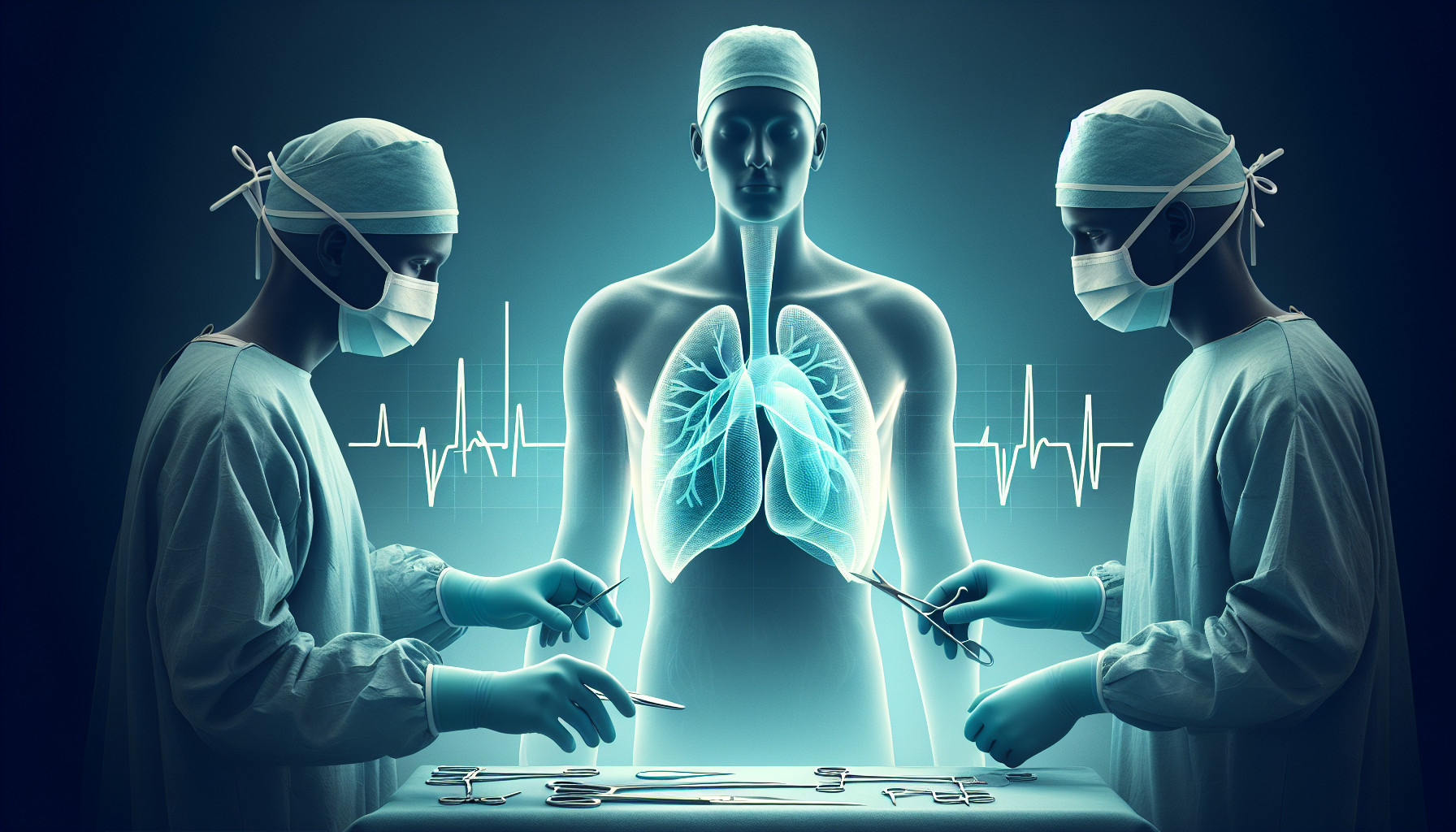Our Summary
This research paper looks at the common issue of atrial fibrillation (AF), a heart condition that can increase the risk of stroke and heart failure, which often occurs after chest or lung surgery. There have been many studies trying to find the best way to prevent AF from happening after these surgeries, but the results have been inconsistent. This paper reviews a number of these studies, carried out between 1991 and 2014, to see if any trends or conclusions can be drawn.
The researchers found 12 trials that fit their criteria. They found that a drug called amiodarone was the most effective at preventing AF after surgery. In fact, it was able to reduce the occurrence of AF from 39.2% to 8.3%, and it didn’t cause any major complications. Other drugs, including MgSO4, digoxin, and Ca blockers, did not have significant preventative effects.
In conclusion, while many different preventative measures have been tried, it seems that amiodarone is the most effective treatment for preventing AF after lung surgery.
FAQs
- What is atrial fibrillation (AF) and how is it related to lung surgery?
- Which drug was found to be the most effective at preventing AF after lung surgery?
- What other drugs were studied for their preventative effects against AF after surgery and how did they perform?
Doctor’s Tip
One helpful tip a doctor might give to a patient undergoing lung surgery is to follow all pre-operative instructions carefully, such as avoiding smoking and following any dietary guidelines. Additionally, after surgery, it is important to follow the post-operative care plan provided by the medical team, including taking any prescribed medications as directed and attending follow-up appointments. It is also important to inform the medical team of any new or worsening symptoms, as early intervention can help prevent complications such as atrial fibrillation.
Suitable For
Patients who are at a higher risk of developing AF after lung surgery are often recommended for preventative measures, including those with a history of AF, older age, obesity, hypertension, and chronic obstructive pulmonary disease (COPD). Additionally, patients undergoing thoracic surgery, such as lung resection or lobectomy, are also at a higher risk for developing AF post-operatively.
Overall, patients who are at a higher risk for developing AF after lung surgery should be closely monitored and considered for preventative measures, such as the use of amiodarone, to reduce the risk of complications and improve outcomes.
Timeline
Before lung surgery, a patient will typically undergo a series of tests and consultations with their medical team to assess their overall health and determine the best course of treatment. They may need to quit smoking and follow a specific diet or exercise regimen to prepare for surgery. The patient will also receive information on what to expect during and after the procedure.
After lung surgery, the patient will likely experience pain and discomfort, as well as fatigue and difficulty breathing. They will need to follow a strict post-operative care plan, which may include medications, physical therapy, and breathing exercises. It may take several weeks or even months for the patient to fully recover and regain their strength.
In the weeks and months following lung surgery, the patient will have follow-up appointments with their medical team to monitor their recovery and address any concerns or complications. It is important for the patient to follow their doctor’s instructions and take any prescribed medications to ensure a successful recovery.
What to Ask Your Doctor
Some questions a patient should ask their doctor about lung surgery include:
- What type of lung surgery will I be undergoing?
- What are the potential risks and complications associated with this surgery?
- How long will the recovery process take, and what can I expect during this time?
- Will I need any additional treatments or medications after the surgery?
- What steps can I take to help prevent complications, such as atrial fibrillation, after the surgery?
- How often will I need follow-up appointments after the surgery?
- Are there any lifestyle changes I should make to improve my recovery and overall lung health?
- What is the success rate of this type of surgery for my specific condition?
- Are there any alternative treatment options available?
- How can I best prepare for the surgery, both physically and mentally?
Reference
Authors: Zhang L, Gao S. Journal: J Cardiovasc Pharmacol. 2016 Apr;67(4):351-7. doi: 10.1097/FJC.0000000000000351. PMID: 26779893
